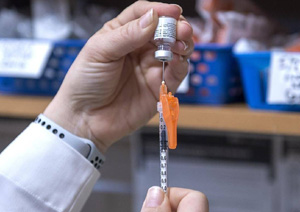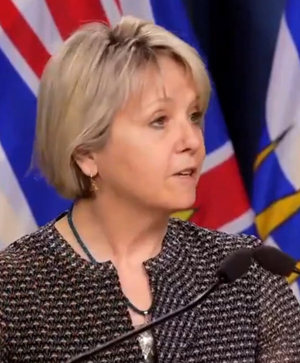
Monday March 15, 2021 | VICTORIA, BC [Updated at 1:10 pm re use of AstraZeneca in BC | Updated March 16, 2021 re AstraZeneca supply]
by Mary P Brooke, B.Sc., Editor | Island Social Trends
Despite various challenges of procurement, logistics in delivery and training enough personnel to run the clinics in the provinces, when seen in context of not even having vaccines only three months ago, this progress toward getting this country out of the pandemic is remarkable.
Further, the fact that the vaccine products work so well in elderly people is considered a remarkable scientific achievement, as has been said often by Provincial Health Officer Dr Bonnie Henry.
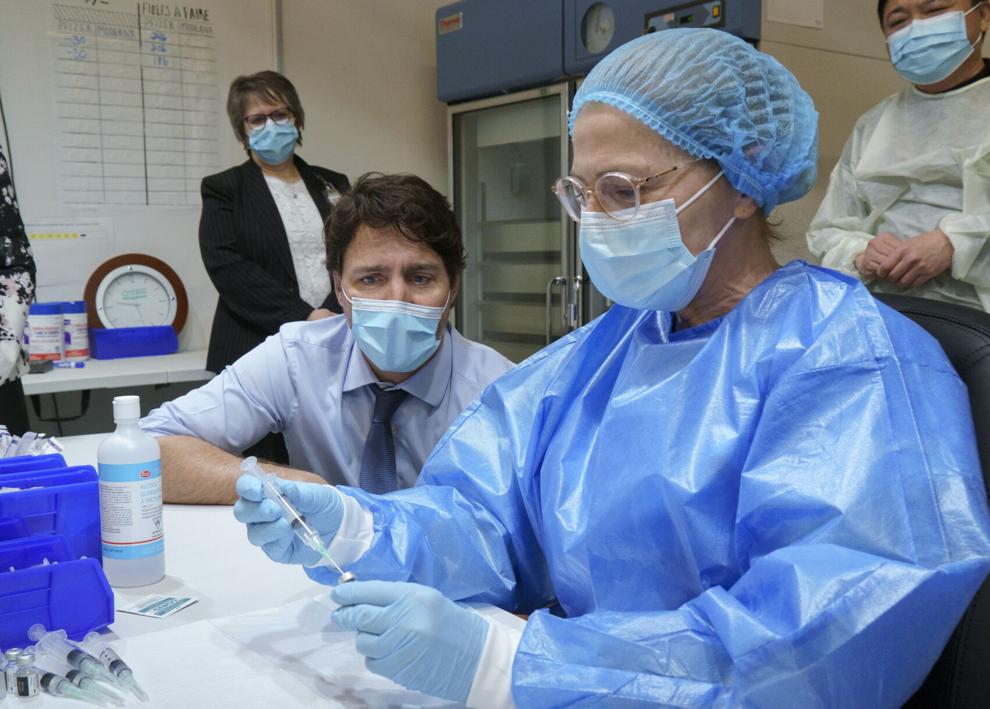
Four vaccines approved in Canada:
There are presently four vaccine products approved by Health Canada for use in Canada.
So far, supplies of two types (Pfizer and Moderna) have been received in BC.
Vaccine supply & administration in BC:
According to the BC Centre for Disease Control on Friday March 12, BC had received 445,920 doses of vaccines through federal procurement (80,100 Moderna and 365,820 Pfizer).
Of the total 445,920 dose supply, as of March 12 BC had administered 380,743 doses. That leaves over 65,000 doses (or about 15%) remaining for second-dose administration and emergencies such as workplace outbreaks.
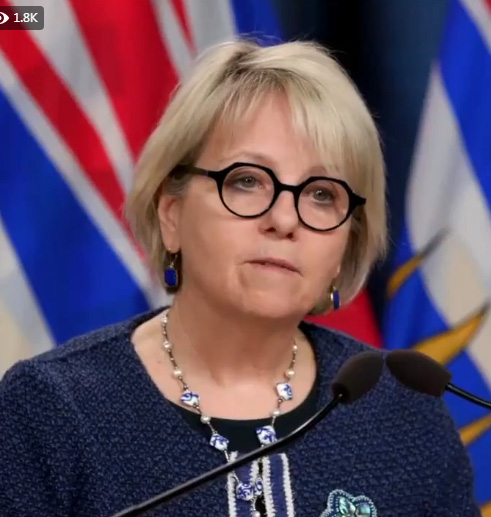
BC Health has announced today (March 15) that the first doses of AstraZeneca in BC will be used to “assist with outbreak response in communities and protect workers throughout the province”.
This was apparently always in the plan, i.e. for allocation to “priority and front-line workers and industries ahead of Phase 3”, as stated in today’s BC Health news release, jointly issued with the Public Health Officer.
Dr Henry already stated that objective last week in her media session on March 11 and again during a pre-taped interview on CBC’s The National as aired on Sunday.
Smaller communities in remote locations can see a lot of spread during an outbreak. Certain types of workplaces where physical proximity is essentially unavoidable (like food processing plants) are known to be COVID infection hotbeds if things get out of control.
BC public health leadership said a few weeks ago that essential workers would be given a choice between an immediate AstraZeneca jab or waiting the turn of their age cohort. That choice is apparently no longer available for the first groups designated as essential. The advice and mantra have become: “The best vaccine is the one you are offered.”
Stubborn case counts in BC:
The immunization strategy is in flux, adapting to the cusp of a possible third wave of the COVID-19 pandemic. People are experiencing not only personal ‘COVID fatigue’, life just must get on. Social, economic and family networks need reconstructing in the face of mounting crises in businesses and mental health concerns.
As of March 12, there are 5,070 active cases of COVID-19 in BC, with 255 people in hospital (67 in ICU). One of the highest numbers of people so far in self-isolation due to exposure to the virus was recorded last Friday: 9,155.
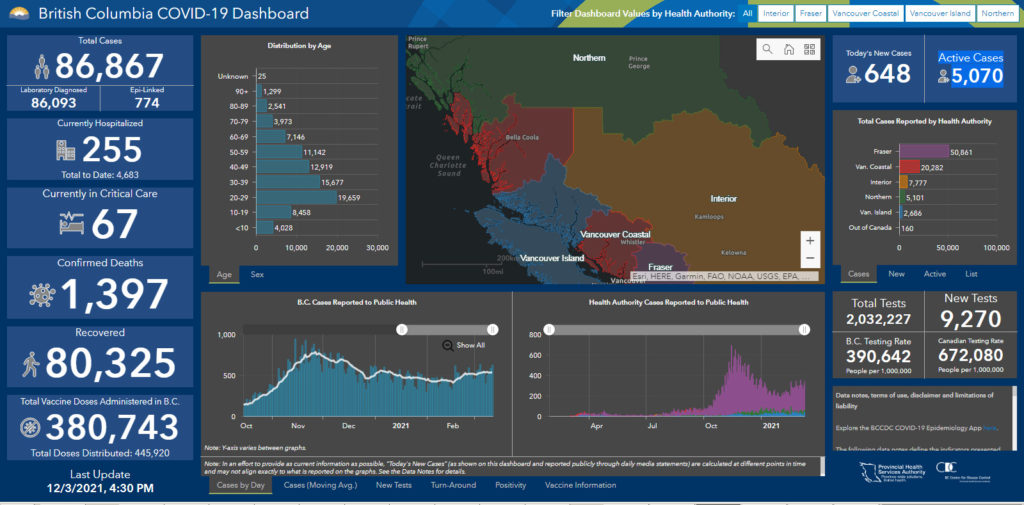
Vaccine types:
Here is a profile of the four vaccine types approved for use in Canada so far.
Pfizer & Moderna:
Two of the vaccines (the first two that were released to market by their manufacturers, and the first two approved in Canada), are the mRNA type. Those are the Pfizer-BioNTech and Moderna products which activate the body’s immune system to produce proteins that the body will use to fight the COVID virus if it arrives in the body. These are two-dose vaccines.
- Pfizer: Based on studies in about 44,000 participants, the Pfizer-BioNTech COVID-19 vaccine was 95% effective in preventing COVID-19 beginning 1 week after the second dose.
- Moderna: Based on studies in about 30,000 participants, the Moderna COVID-19 vaccine was 94.1% effective in preventing COVID-19 beginning two weeks after the second dose.
AstraZeneca:
The next one approved was the AstraZeneca product. It delivers a different type of protection through a viral vector process (similar to vaccines of the pre-COVID era) where a fragment similar to the spike protein composition of the COVID virus is introduced as something that the body can prepare antibodies against. “It does its job and goes away,” as stated in the vaccine profile published by Health Canada. This is also a two-dose vaccine.
The AstraZeneca COVID-19 vaccine showed an effectiveness of about 62% in preventing symptomatic COVID-19 disease beginning two weeks after the second dose. This effectiveness rate is based on an analysis of results from participants who had received the two-dose regimen that will be used in Canada.
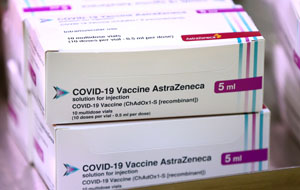
BC will be receiving its AstraZeneca supply from a supplier in India (the Serum Institute of India), and thus is referring to the product as AZ/SII in its media releases.
Today Dr Henry said she has great confidence in the product, though she added “we’re not sure how much and when” is arriving in the coming months.
On March 16 the BC Centre for Disease Control dashboard showed AstraZeneca supply for the first time in their stats: 68,000 doses received (1,000 of which was shown as supplied to Island Health).
Johnson & Johnson:
The Jannsen vaccine product by Johnson & Johnson is a viral vector product, requiring a single dose. After a clinical trial of 43,000 people it was found to be 66% effective in preventing symptomatic COVID-19 disease beginning 2 weeks after vaccination.

===== LINKS:
Here are the Health Canada vaccine profiles as posted on the BC Health vaccine plan webpage:
- Learn about the Pfizer vaccine
- Learn about the Moderna vaccine
- Learn about the AstraZeneca vaccine
- Learn about the Johnson & Johnson vaccine



